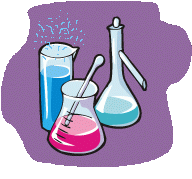


Description of experiment
Below follows a plain text transcript of the selected experiment.
![]()
Needed compounds:
-----------------
hydrogen peroxide : H2O2
methyl salicylate : C6H5 OH COO CH3
sodium dithionite : Na2S2O4 . 2H2O
ferrous sulfate : FeSO4 . 7H2O
Class:
------
elem=Fe
coordination
redox
Summary:
--------
Ferrous sulfate is hard to dissolve cleanly in water. It usually is
contaminated with some oxidation products and in the water it is slowly
oxidized by air as well.
Description:
------------
Add some ferrous sulfate to plain water: The solid dissolves, the liquid
turns yellow/brown and slightly turbid. The turbidity is not in the form of
an amorphous precipitate, but it looks as if many microscopic crystals are
moving around in the liquid. The liquid reflects some light. After the liquid
is left alone for some time, the liquid is clear and pale yellow/brown and
a yellow precipitate is on the bottom.
Add a minute quantity of sodium dithionite: The solid dissolves and a faint
odour of SO2 can be observed.
Add a little more sodium dithionite: This also dissolves. The liquid suddenly
turns almost colorless (a very pale hue of green), but the liquid does not
become clear (the crystal like precipitate does not dissolve).
Add a few drops of methyl salicilate: Formation of a few almost sphere-shaped
oil-like drops on the bottom. Besides this, an oil-like spot appears on the
surface of the liquid. The liquid remains pale green and a little turbid. The
OH-group on the benzene-ring of the methyl salicilate does not form a complex
with the ferrous ions (probably the -COOCH3 group introduces a large amount
of steric hindrance, preventing complex formation).
Add a little amount of H2O2 (3%): The liquid immediately turns yellow/brown
(and besides this it appears to become a little bit more clear). The ferrous
ions are converted to ferric ions. Again, no complex formation is observed
between the methyl salicilate and the ferric ions.
![]()